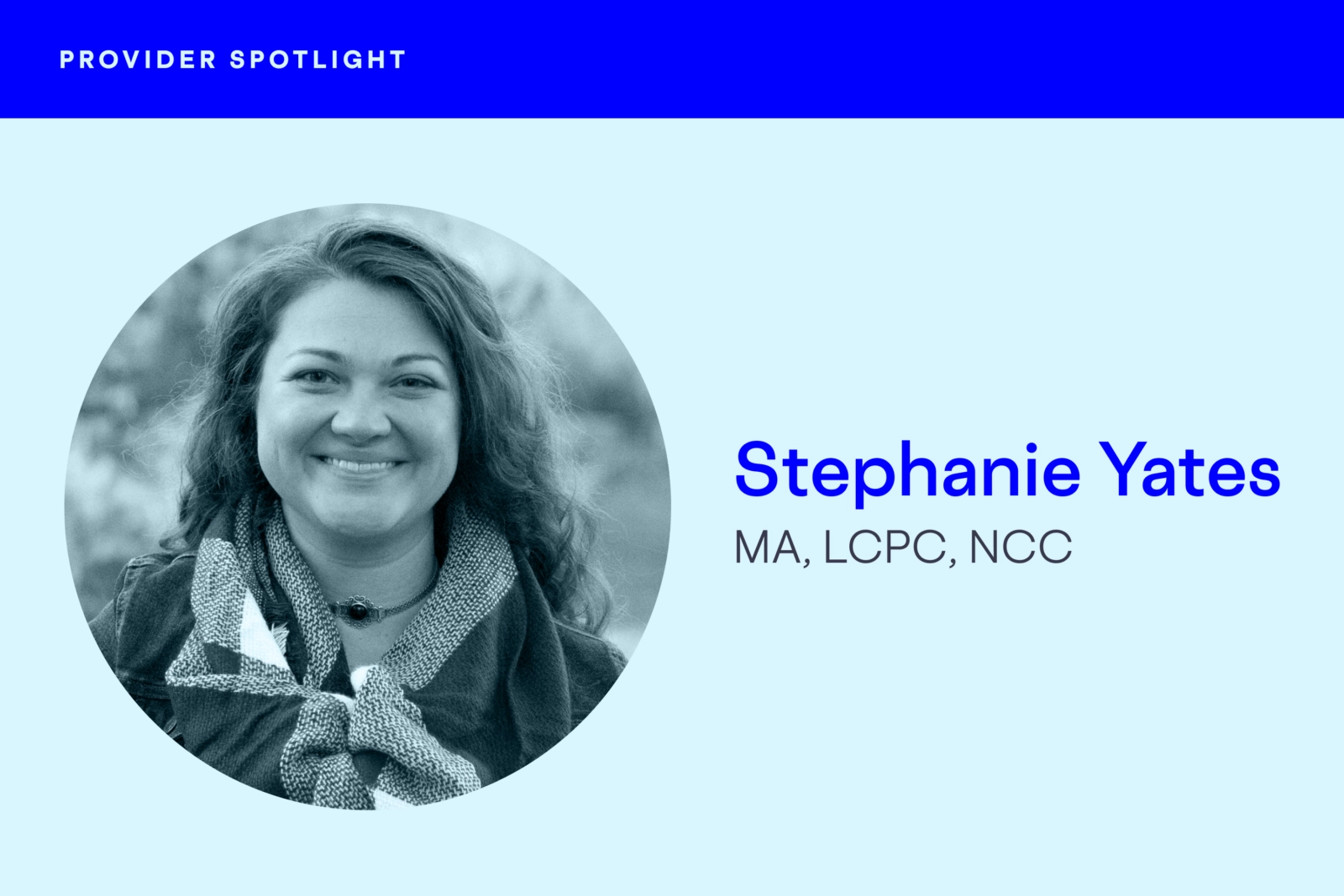At Included Health, it’s our belief that members of the LGBTQ+ community always deserve to have affirming providers and culturally competent care. (Check out our previous blog for some of the ways affirming therapy can benefit the queer and trans community.) This belief is why we help match our members with vetted providers as part of our care coordinator service.
For decades, being queer or trans was diagnosed as a degenerative disorder. It created a deep scar that the health industry must now work to mend by setting aside biases, broadening understanding, and earning the trust of queer and trans patients. We’re doing our part to combat the statistics that almost one-sixth of LGBTQ+ adults have felt discriminated against at a doctor’s office, while one-fifth say they avoid medical care altogether due to their fear of discrimination. We’re proud of the 4000+ providers in our directory, and we want you to be able to hear directly from them.
Our members have had amazing care from Stephanie Yates, MA, LCPC, NCC, a mental health provider with Along the Path Counseling Services, P.C., in Illinois. Read on to learn why she does the work she does for the LGBTQ+ community.
My path to LGBTQ+ counseling
When I was 12 years old, I met a counselor during a school workshop discussing trauma, abuse, and self-advocacy. I was so impressed and inspired that I decided that being a counselor was exactly what I wanted to be someday.
During my undergraduate college years, I loved learning about human psychology, sexuality, gender, relationships, development, and neuroscience. The learning opportunities in my undergraduate studies only solidified my interest and desire to help others as a mental health provider. More informal learning experiences exposed me to the trauma and oppression that individuals in the LGBTQ+ communities often go through, and led me to further educate myself in more formal capacities and pursue growth as an ally. Then I pursued a Masters of Arts degree in Counseling from Northwestern and have been dedicated to this work since.
As a mental health provider, I see a lot of wounds resulting from prejudice, discrimination, and oppression within the healthcare system. Many seeking counseling are wary and guarded after experiencing the pain of non-affirming care. This is often compounded with oppression associated with other domains of identity such as race, culture, and spirituality.
Healthcare challenges for members of the LGBTQ+ Community
Some main challenges are that LGBTQ+ identifying people experience a great deal of discrimination, prejudice, and rejection in healthcare. These experiences create barriers that place LGBTQ+ identifying individuals at greater risks for poor outcomes in physical, emotional, and mental health domains. Non-affirming providers also tend to reaffirm traumatic beliefs and thought processes in LGBTQ+ patients. Retraumatization occurs often and perpetuates a cycle of risk of suicide, homelessness, poor health outcomes, and lack of access to resources.
But through my work in healthcare, I’ve learned there are many ways that providers can combat that harm and make people in the LGBTQ+ community feel welcome, accepted, and safe in our care. “Do no harm” means having the knowledge necessary to competently treat our patients.
Respecting Pronouns
A simple first step is to honor personal pronouns and preferred names. This first step sends the message that a provider is more concerned about the wellbeing and health of the patient and, therefore, is putting the needs and care of the patient first. It can’t stop there, however. As ethical healthcare providers, it is our responsibility to ensure we educate ourselves through workshops, reading materials, trainings, and consultation with experts.
About Stephanie Yates MA, LCPC, NCC
Stephanie (she/her/hers) graduated with a Bachelors of Arts in Psychology with a minor in Family Studies and Human Development in 2015, a Masters of Arts in Counseling from Northwestern University in 2017 and is currently completing a PhD in Counselor Education and Supervision at Northern Illinois University.
Stephanie is a Licensed Clinical Professional Counselor through the state of Illinois and an Affiliate faculty member at Northwestern University. She enjoys volunteering as an ally with local LGBTQ+ organizations, providing training and workshops to encourage inclusion in local organizations, and spending time with her family.
Stephanie’s experience and specialties include spiritual trauma, families, relationships, children and adolescents, sexuality, and non-traditional lifestyles. She has published an article on kink and Stephanie is LGBTQIA+, Kink, Swing, and Poly friendly. Other areas of Stephanie’s focus and experience include depression, anxiety, trauma, and intersectionality.
At Included Health, we strive to provide friendly and exceptional healthcare navigation services to the LGBTQ+ community.Learn more about ourLGBTQ+ Health services for your employees, and please do not hesitate to contact us to #GetIncluded for your company, health plan, and community. If you are an employee or member looking for assistance, please visit ourLGBTQ+ Member Hub to get started.
About the author
Editorial Team
Our Editorial Team is composed of our leaders, clinicians, and care coordinators, as well as other Included Health employees, all who are working to raise the standard of healthcare for everyone. Together, they combine decades of subject matter experience across all fields of healthcare.



